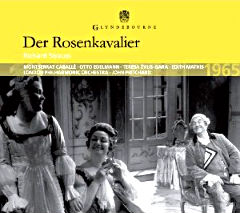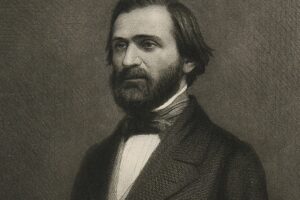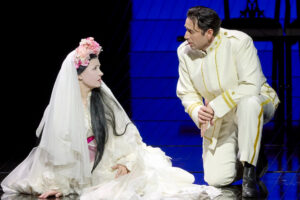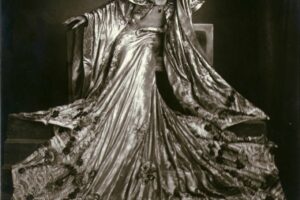

The oldest recording I own is a 1936 Don Giovanni from Glyndebourne. I recently purchased the Met’s 1947 Roméo et Juliette. While the fact that these are live recordings from products of an earlier era of recording technology is apparent upon first listening, both have aged well and benefited from brilliant remasterings. This 1965 Rosenkavalier has a canned sound that feels like a shoddy live recording from a World War II era jazz club.
To double-check my instincts, I listened to some of Kleiber’s 1973 Munich Rosenkavalier and to Knappertsbusch’s 1955 Vienna Rosenkavalier, both also live recordings. I would estimate this Glyndebourne set fell somewhere between the two regarding sound quality, but more on the 1955 side than the 1973 (and even the sound of the Kleiber is a bit of a let-down for 1973!).
Particularly in forte tutti sections, the sound becomes rather muddy and the variety of colors in the orchestra is lost in a sloppy amalgamation. The brass seems to splat and blare in loud sections. The softer and more exposed sections, in contrast, are not casualties of the very dated sound. The wind players bring out their parts with virtuosic expression and finesse.
You can take your favorite clichéd compliments and apply them to Caballé’s performance here. If, for whatever reason, you were to put this recording on and then become focused on some chore or engrossed in a book, your ears would be tickled and your attention diverted back by occasional moments of simply magical singing from Caballé. This, her only Marschallin on disc, is a peerless treasure. Her voice is youthful, warm, and offers a resplendent shimmer throughout. I find this compelling as it gives an older character a young, fresh voice, perhaps expressing what the Marschallin is losing as she ages and yet, in her dalliance with Octavian, still trying to preserve.
Edelmann is a perfectly repulsive, slap-stick Ochs. He sings with comically shaped lines that capture his character and make the most of Strauss’s score. After Caballé, Zylis-Gara was my personal favorite of the cast. Her Octavian is endearingly idealistic and naïve. With her spirited and energetic singing, she personifies Octavian’s young, romantic restlessness and resolve. She does not let this come at any cost to the quality of her sound and her exquisite lyricism. Her “die Rose seiner Liebe überreichen darf” during the presentation of the silver rose is beyond sublime.
Mathis did not make the impression on me that the other three main cast members did, but I found nothing at all objectionable in her interpretation. John Andrew’s Italian tenor was not to my taste.
John Pritchard inspires the London Philharmonic to produce a warm, engaged realization of the score. The excitement and energy inherent to most live performances are accentuated here by Pritchard’s enthusiasm for this music. The closing minutes of Act I are painfully nostalgic and pensive. In the final scene of Act II, where Ochs reacts to the letter from “Mariandel,” clumsily and over-confidently falling into Octavian’s trap, the breadth and charming pulse of the waltz delightfully satirize the Baron’s presumptions.
If you can put up with sound quality that predates the performance by several decades, and you have room on your shelf for another Rosenkavalier, you would do well to purchase this recording. While Caballé’s much-anticipated Marschallin does indeed live up to the hype, the other more-than-solid performances on this set should help persuade fence-sitters that their money would be well spent.
























Comments